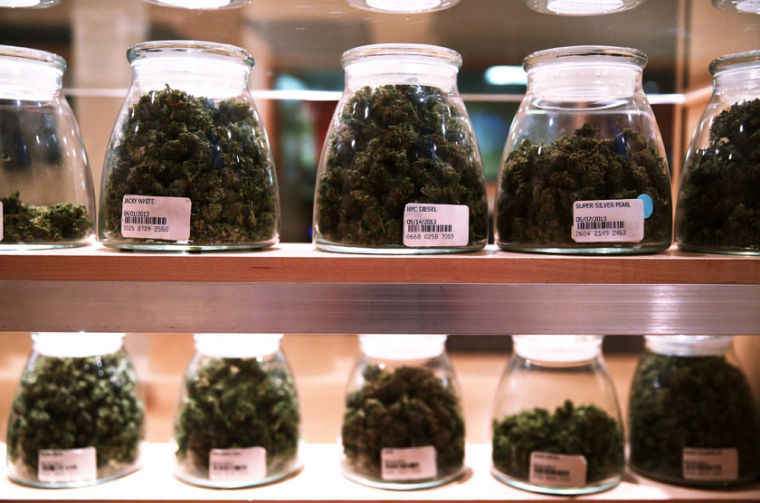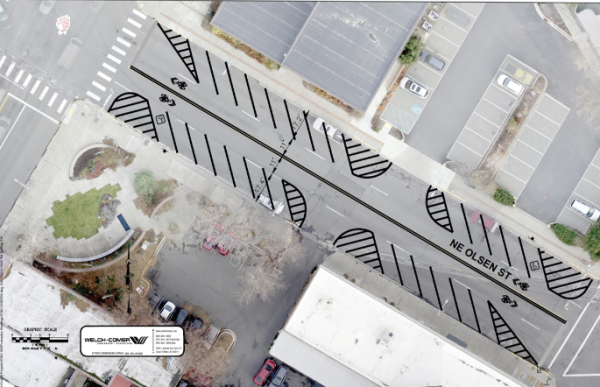Sherriff approaches Council about marijuana shops
Jars containing various strands of medical marijuana sit behind a display case at the River Rock Medical Marijuana Center in Denver, Colorado, on May 16, 2013.
October 30, 2013
With the recent approval of Washington state’s cannabis laws, Whitman County Sherriff Brett Meyers believes the reality of legalized marijuana could make it difficult for law enforcement to indicate violators.
The Pullman City Council welcomed Meyers Tuesday at their meeting as he presented a brief history of marijuana and explained the possibilities of an escalated black market to compete with retail shops.
“We aren’t going to be a safe pot haven in Pullman,” Meyers said.
The Washington State Liquor Control Board adopted regulations for the recreational marijuana market on Oct. 16.
“The primary use of marijuana today is recreational because federal government does not recognize any medicinal value in the drug,” he said.
The state cannot officially recognize marijuana for medical uses, which bars cannabis-practicing doctors from prescribing the drug unless one can prove proper documentation that states legitimate reasons for acquiring the drug for health purposes.
Meyers said it would be easy for people to exploit the law of medical marijuana, since people can own more at one time than someone possessing recreational-use cannabis.
“These laws allow plenty of room for marijuana users to abuse the laws,” Meyers said.
Once the six-month moratorium against the production, processing and distribution of marijuana concludes in 2014, up to three cannabis shops can feasibly exist.
One gram of marijuana at street value costs $4-6, Meyers said.
If Pullman were to house a retail marijuana shop, the combination of increased taxes and an active black market could bump the street price to $12, he said.
Councilman Nathan Weller asked Meyers whether law enforcement is seeking out hemp growers.
Meyers said the growing and possession of hemp does not fall within the list of regulations approved at the state level.
He said marijuana must be sent to a state crime lab in order to test the strength of the THC, which costs about $500 per test.
Councilwoman Pat Wright inquired on Washington state’s future path of legalized marijuana. She asked whether the state was modeling off Colorado’s implemented measures pertained to controlling the marijuana market.
Meyers said he thinks Washington state and Colorado are on the same calendar in terms of when marijuana retailers are expected to become existent; however he differs on the overall handle of how each state plans to advance its management of the marijuana sales.
He believes Colorado has a better grasp on how to control the market and regulate the distribution.
“I think Colorado has a bit better platform,” Meyers said.
New regulations are in the formation process in Olympia. Though just ideas at this time, the proposals include requiring a registry of all medical marijuana users and prohibiting unlicensed grow operations.
Meyers expects these regulations to be formerly proposed by January 2015.
“I think over the next few years, it’s going to be a changing game,” Meyers said.





















